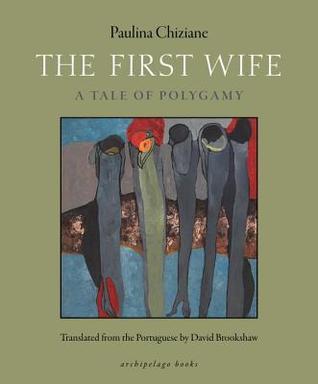 I would buy Visitation a few years later, after reading (and adoring) The End of Days, a book I can both admit to have loved and one that I think is a true masterpiece. The End of Days is such a brilliantly written novel - innovative, but not a slave to its innovation, clever, but not frustrating, emotional, but not tedious. Reading it felt like a revelation and a suggestion that perhaps I could love Jenny Erpenbeck's work. After all, I read The Book of Words at a time when I had little patience for more experimental fiction, and after all, I never actually read Visitation...
I would buy Visitation a few years later, after reading (and adoring) The End of Days, a book I can both admit to have loved and one that I think is a true masterpiece. The End of Days is such a brilliantly written novel - innovative, but not a slave to its innovation, clever, but not frustrating, emotional, but not tedious. Reading it felt like a revelation and a suggestion that perhaps I could love Jenny Erpenbeck's work. After all, I read The Book of Words at a time when I had little patience for more experimental fiction, and after all, I never actually read Visitation...So I bought Visitation. It would take me almost a year and half before I could bring myself to read that book which still left a bitter taste in my mouth, only from those first few pages. And guess what? I couldn't quite figure out what specifically had left such a strong impression in those early, vague pages, but oh my goodness did I have the exact same sensation throughout the entire book.
What a shame.
And here's the thing: I'm not the same reader today as I was even three years ago. Every book I read adds to my consciousness and changes how I experience the books that follow. I read Visitation during a reading slump; I imagine this impacted how I interpretated the book. It felt clunky and slow, as though I was reading through tar. Even though it took me so long to get through it, it left no impression. It's been a month since I finished it, and I can hardly tell you a thing about it.
Oh yes, I can vaguely recall the novella's concept, and there is a plotline and a half that I recall. But the book felt so thin (content-wise, not just in terms of length) that not a speck of it remains. I formed no emotional attachment to any of the vaguely described characters. I didn't enjoy the loose sketching of post-war Germany. The politics felt distant and meaningless. And the book itself, for something so short, dragged. It was like a road cutting through a forest, that instead of taking a straight, logical line, twisted around itself as many times as possible before reaching the end.
I didn't like Visitation. I feel like a bad reader for admitting this. I feel like I've failed the book blogging community that adores Erpenbeck, that constantly praises her writing for its intelligence and depth. Goodness, I feel like I've failed as a reader, that somehow the problem is - again - that I didn't understand the book. Maybe I'm not clever enough, maybe there's a cultural context I'm missing here... And here's what's incredible: I wrote pretty much the exact same thing when "reviewing" Erpenbeck's The Book of Words five years ago.
Maybe, as with many books I've read in recent months, I have lost patience with books that are all style over substance. The End of Days worked, in my mind, because Erpenbeck found an excellent balance between the two; it's a creative exercise that works, crafting a character the reader can grow attached to and spinning a story that manages to both entice and challenge. The End of Days did more than just tell five versions of a character's life, it managed to make each the absolute focus. It managed to make each feel utterly consequential. Visitation fails in large part because it doesn't ever find its emotional hook. Like The Book of Words, I am left with absolutely nothing to say about it. The book has left no impression. There is only the concept and clever as it may be, concept just isn't enough for me. If that makes me a bad reader, so be it.












